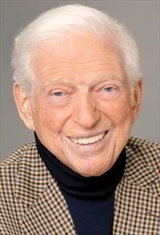A Quote by William Lee Miller
Abraham Lincoln had great clarity of mind and expression, and he worked to make it clearer -reading Euclid in his early 30s to train his mind.
Related Quotes
When your friend speaks his mind you fear not the 'nay' in your own mind, nor do you withhold the 'ay. And when he is silent your heart ceases not to listen to his heart; For without words, in friendship, all thoughts, all desires, all expectations are born and shared, with joy that is unacclaimed. When you part from your friend, you grieve not; For that which you love most in him may be clearer in his absence, as the mountain to the climber is clearer from the plain.
When Heaven is about to confer a great office on a man, it first exercises his mind with suffering, and his sinews and bones with toil ; it exposes his body to hunger, and subjects him to extreme poverty ; it confounds his undertakings. By all these methods it stimulates his mind, hardens his nature, and supplies his incompetencies.
I think that when you look at the great politicians, the two greatest in my view were George Washington and Abraham Lincoln, they certainly had character traits. You also know Abraham Lincoln overcame severe depression problems that he had when he was younger, which gave him the strength and the character later on.
Wilhelmine Germany was hostile to the expression of same-sex love - and, of course, Mann would have known of the fate of Oscar Wilde. His early reading of Platen's poetry, and, probably when he was in his early twenties, of Platen's diaries, introduced him to a form of sexual expression he found profoundly congenial. It's not quite Platonic.
Until the early 90s, when I was working on a project about the idea of free will in American philosophy. I knew that Lincoln had had something to say about "necessity" and "fatalism," and so I began writing him into the book. In fact, Lincoln took over. I wrote instead 'Abraham Lincoln: Redeemer President,' in 1999, and I've splitting rails with Mr. Lincoln ever since. If there's a twelve-step process for this somewhere, I haven't found it yet.
What Abraham Lincoln had to face was a culturally and politically cohesive bloc of states comprising half the country, refusing to discuss even the limitation of slavery; while he had only the most feeble means of enforcement. The British and the French could do their emancipating at a distance; Lincoln had armed resistance almost literally at his doorstep.






























